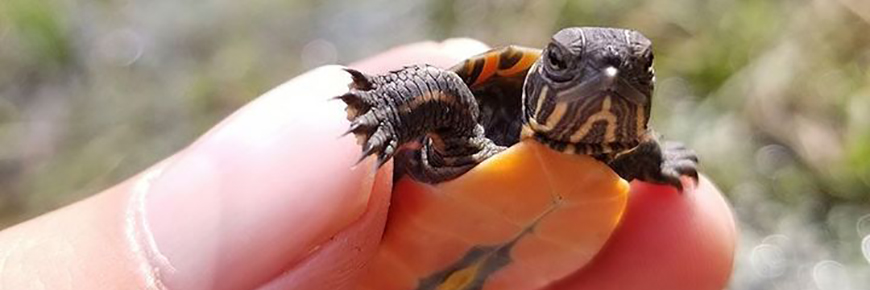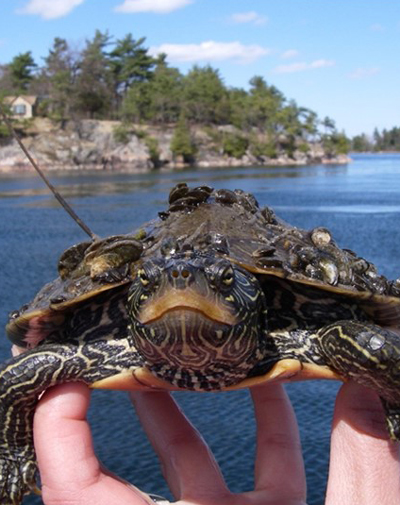
Research priorities
Thousand Islands National Park
Thousand Islands National Park is one of the most biologically diverse national parks in Canada. With an extension of the Canadian Shield extending right through the park and the St. Lawrence River creating a micro-climate, the area is rich with varied habitats and biodiversity. A large number of species are found at the extreme northern extent of their range, many of which are disjunct from their core populations and some of which are demonstrating novel characteristics. The park’s land holdings that include 26 islands, 80 islets as well as large mainland properties, create ideal scenarios for researchers to set up strong study designs in a variety of ways. Some of the most remote islands found in southern Ontario serve as exceptional study sites. Park research priorities are derived from needs identified in the Park Management Plan (an updated plan is scheduled for completion in 2022), the Multi-species Action Plan along with other key documents. Please read Parks Canada’s research permit requirements for details on the research permitting process. Parks Canada works closely with Indigenous groups across the country. In the spirit of reconciliation, research in Thousand Islands National Park is conducted in a supportive manner with the Mohawks of Akwesasne. The Mohawks determine if research projects incorporate their priorities and traditional ecological knowledge components, contextual Indigenous worldviews, ethics, values and processes. The Parks Canada Research Coordinator will assist in making connections with the Mohawks of Akwesasne.Priority Research Interests

Key Research Priorities:
Working with Indigenous Partners
Support Offered to Researchers
Supplementary Research Interests
- Reptile home range, movement patterns, habitat suitability indexes, population size and trends, hibernacula inventory and genetic assessment.
- Mitigation options to reduce turtle by-catch in commercial fishing nets.
- Causes of low reproduction in deerberry and efficacy of prescribed fire on deerberry.
- Invasive species removal efficiencies. Particularly dog-strangling vine for both new and long-established populations.
- Identify ways to improve incorporation of Traditional Ecological Knowledge into park management and planning, and to incorporate the worldviews of indigenous partners into the narrative of the greater park ecosystem.
- Deer browse surveys. A variety of geo-spatial resources are available for use.
Contact Information:
Josh Van Wieren, Ecologist Team Lead
Email: josh.vanwieren@pc.gc.ca
Phone: (613) 923-5261 ext. 113
Related links
- Date modified :